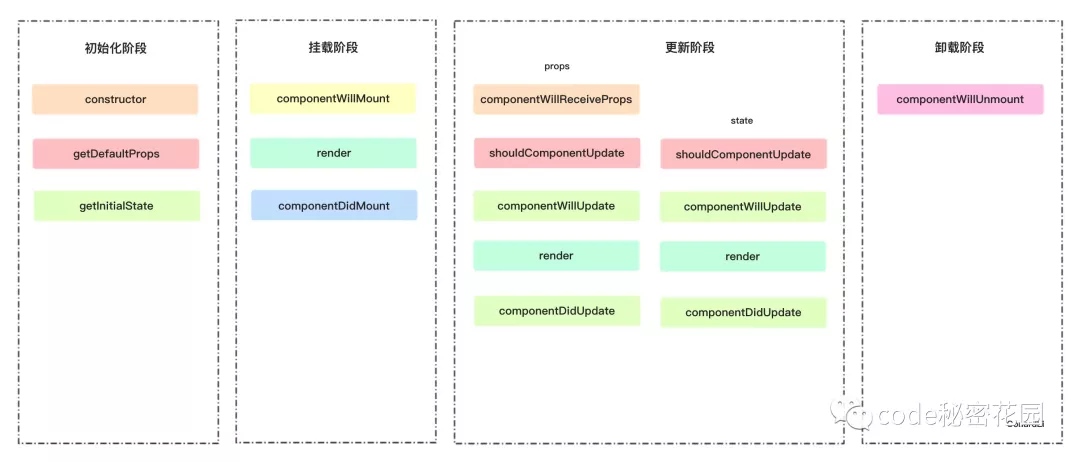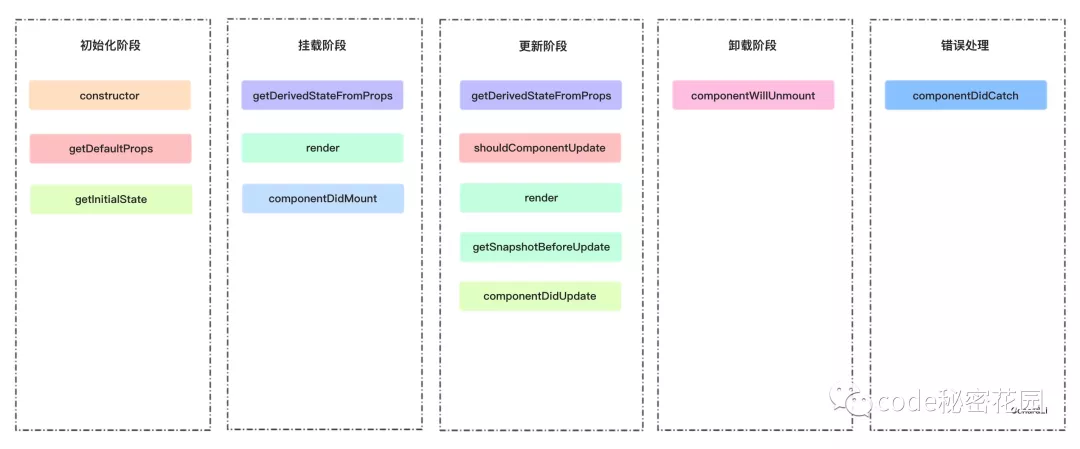# React 生命周期
生命周期输出示例
// 已知组件
class Base extends Component{
constructor(props) {
super(props);
console.log(props.prefixer + ' constructor')
}
componentWillMount() { console.log(this.props.prefixer + ' will mount') }
componentDidMount() { console.log(this.props.prefixer + ' did mount') }
componentDidUpdate() { console.log(this.props.prefixer + ' did update') }
render() {
console.log(this.props.prefixer + ' render')
return this.props.children || null;
}
}
// 渲染调用
render(<Base prefixer="parent">
<Base prefixer="child" />
</Base>, document.querySelector('#root'))
答案:
parent constructor
parent will mount
parent render
child constructor
child will mount
child render
child did mount
parent did mount
# React生命周期有哪些,16版本生命周期发生了哪些变化
15生命周期:

16生命周期:

- React16新的生命周期弃用了3个钩子函数:
componentWillMount、componentWillUpdate、componentWillReceiveProps; - 新增了
getDerivedStateFromProps、getSnapshotBeforeUpdate来代替弃用的三个钩子函数(React16并没有删除这三个钩子函数,但是不能和新增的钩子函数混用,React17将会删除这三个钩子函数); - 新增了错误处理阶段:
componentDidCatch。
由于
Fiber在新版本中会支持异步渲染的特性,而componentWillMount、componentWillUpdate、componentWillReceiveProps这3个生命周期钩子,在异步渲染模式下会有一些潜在的问题,因此被弃用。
# componentWillUnmount有什么用,列举使用场景
ComponentWillUnmount()在组件被卸载和销毁之前立即调用。在此方法中执行任何必要的清理:
- 移除定时器和事件;
- 取消还未返回的网络请求回调(即网页发出请求,在请求数据还未回来的时候,跳到另一页面,数据回来之后会setstate,这样会导致内存泄露)。
